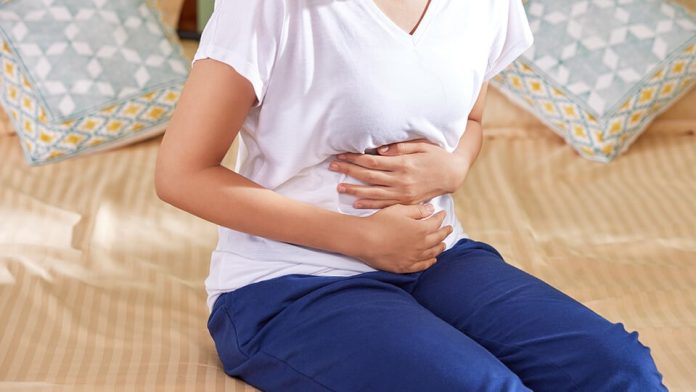“I felt like I was dying. The pain was consuming me, and I thought I’d never escape”, these were the words that came from Aishetu Inusah a 16-year-old girl from Sagnarigu, in the Northern Region.
Aishetu’s life was forever altered when her father passed away when she was just eight years old. Left in the care of her mother, who sells tissues in a local market, she quickly learned that life is a constant struggle.
Despite her mother’s tireless efforts, the family often grapples with hunger and uncertainty. Yet, Aishetu carries a spark of hope—a dream of becoming a nurse.
“Sometimes, I feel like I’m shouldering the burden of our struggles. I help with household chores and care for my siblings, but I long to focus on my education. I dream of becoming a nurse one day, but it seems like an impossible feat,” she says, a flicker of determination shining through her weary eyes.
The start of Menstruation
When Aishetu first started menstruating, her fear was palpable. “I didn’t know what was happening to my body,” she recalls.
Her mother provided what little guidance she could, but the reality of their financial situation made access to sanitary products impossible.
Forced to use cloth, Aishetu faced humiliation when leaks stained her clothes. “I felt embarrassed and ashamed,” she confesses.
“Sometimes when I go to school and I stain my cloths my friends would laugh at me and I would cry home. I stayed home for one month because I didn’t want to go to school and my friends will laugh at me”, she continued to share.
The stigma surrounding menstruation made her feel as if she were carrying an unbearable burden—one that isolated her from her peers.
The Secret Solution
In search of a solution, Aishetu returned to school after staying homefor a month.
During one of her school hours she overheard older girls discussing a method that seemed to promise relief from her embarrassment: using car dust.
“They whispered about it as if it were a secret,” she says.
“I thought it would help me avoid the shame.” But what she believed to be a solution quickly spiraled into a nightmare. The dust caused severe irritation and led to excruciating infections.
The Painful Consequences
The physical toll of using car dust was devastating. “I’d bleed heavily, and my skin would be irritated. I couldn’t walk or go to school,” Aishetu explains, tears brimming in her eyes.
The pain became so unbearable that she was often confined to her bed, while her mother console her.
“I remember one day, I was in so much pain that my mom was crying. I felt like I was dying,” Aishetu shares, recalling the desperation that enveloped their small home.
During this time Aishetu says she would always cry herself to sleep because she didn’t know any remedy to ease the pain so by the time she wakes up the pain would ease.
A Glimmer of Hope
Aishetu life took a turn when a kind woman whose name she couldn’t recall met her on her way home after school crying because of abdominal pain.
“She saw me crying and called to come, so when when I went she asked me why I was crying and I told her my abdomen was paining me and she offered to take me to the hospital”, she recounted.
It was there at the clinic that the doctor revealed the severity of her condition: a severe infection that required immediate treatment.
“I remember the doctor told me I had an infection and quickly treated me and gave me some medication to take home after the woman who brought me to the clinic paid the cost and took me home,” Aishetu shared as tears dropped down to her cheeks.
Aishetu told this reporter that she was grateful but also ashamed that she and her mother couldn’t afford sanitary and healthcare.
That woman’s kindness not only saved her life but also restored her dignity, as she provided Aishetu with sanitary pads for the first time.
The Emotional Toll
Despite the relief that came with treatment, the emotional scars remained.
“I felt like I was worthless, like my body was cursed,” she recalls, reflecting on the shame and isolation that had plagued her for so long.
Aishetu distanced herself from friends and family, believing that no one could understand her struggles.
“I thought I’d never marry or have children because of the shame,” she says, a sadness in her voice.
Yet, the words of the woman who helped her lingered: “You’re not alone, Aishetu. You deserve dignity.” These words became a lifeline, helping her realize that her worth was not defined by her struggles.
Now, Aishetu is determined to turn her pain into purpose. “I want to be a nurse to help girls like me,” she states, her voice filled with conviction.
She dreams of advocating for affordable sanitary products and healthcare, envisioning a future where no girl has to resort to using car dust or suffer in silence.
“I want to break the cycle of poverty and create a better life for myself and my family,” she asserts, a sense of hope illuminating her face.
Aishetu’s story is painful, yet it is also a beacon of hope. She shares her experiences not just to recount her suffering but to raise awareness about the reality of period poverty.
In rural Ghana, menstruation is often shrouded in silence and stigma, leading to a hidden crisis that affects millions of girls and women.
Period poverty a term that describes the lack of access to sanitary products, hygiene facilities, and education poses a significant barrier to education, health, and dignity.
As young girls face the realities of menstruation without adequate resources, their futures hang in the balance.
The Cost of Sanitary Pads
Sanitary pads, a basic necessity for menstrual health, are often viewed as luxuries by many families in Ghana.
The average cost of a pack of pads can range from 15 to 20 Ghanaian cedis, a price that may seem minimal to some but is a significant expense for those living below the poverty line.
According to the Ghana Statistical Service, about 25.5% of Ghanaians live on less than $1.90 a day, making basic hygiene products unaffordable for many families.
Consequently, girls are forced to improvise, using cloth, tissue, or even leaves, leading to health risks and discomfort.
Impact on Education
The consequences of period poverty extend beyond health. In Ghana, it is estimated that one in ten girls misses school during their menstrual cycle.
A study by the United Nations Children’s Fund (UNICEF) found that 20% of girls reported being absent from school due to menstruation.
This disruption not only affects their education but also their confidence and aspirations for the future. Reports indicate that many girls drop out of school altogether; in some regions, as much as 34% of girls leave school due to menstruation-related challenges, perpetuating the cycle of poverty and limiting opportunities for upward mobility.
Cultural Stigmas and Silence
Cultural beliefs around menstruation often contribute to the stigma. In many communities, menstruation is considered a taboo subject, making it difficult for girls to seek help or talk about their needs.
Traditional practices and misconceptions can further isolate young women during their menstrual cycles.
A survey by the Ghanaian non-profit organization, “Days for Girls,” found that 54% of girls felt uncomfortable discussing menstruation with their parents, reflecting the deep-rooted stigma that persists in society.
Health Consequences
The use of makeshift menstrual products increases the risk of infections and other health complications.
Girls using unsanitary cloths are more susceptible to urinary tract infections and other serious health issues.
The World Health Organization (WHO) estimates that up to 70% of girls and women in developing countries experience reproductive health issues due to inadequate menstrual hygiene management.
The lack of proper education about menstrual hygiene exacerbates these problems; many girls are unaware of the importance of changing their sanitary products regularly, further compromising their health.
Initiatives and Solutions
Recognizing the urgent need for change, various organizations and government initiatives have started to address the issue of period poverty in Ghana.
Non-governmental organizations (NGOs) are working tirelessly to provide girls with education about menstrual health and distribute sanitary products.
Programs like “Dignity Period,” launched by the Ghanaian government in 2018, aim to provide free sanitary pads to schoolgirls, ensuring that menstruation does not hinder their education.
Local Production and Affordability
A significant step towards alleviating period poverty is the local production of affordable sanitary pads.
Several social enterprises in Ghana are rising to the challenge, creating eco-friendly pads at lower costs.
These initiatives not only provide a solution to the hygiene crisis but also create job opportunities for local women, further empowering communities.
The Role of Advocacy
Advocacy plays a crucial role in breaking the stigma surrounding menstruation.
Public discussions, community workshops, and educational campaigns are vital in normalizing conversations about periods.
A survey by the NGO, “Menstrupedia,” found that 75% of respondents felt that education about menstruation should start before girls reach puberty.
Schools, parents, and community leaders need to collaborate to create a supportive environment where girls can feel comfortable discussing their needs.









